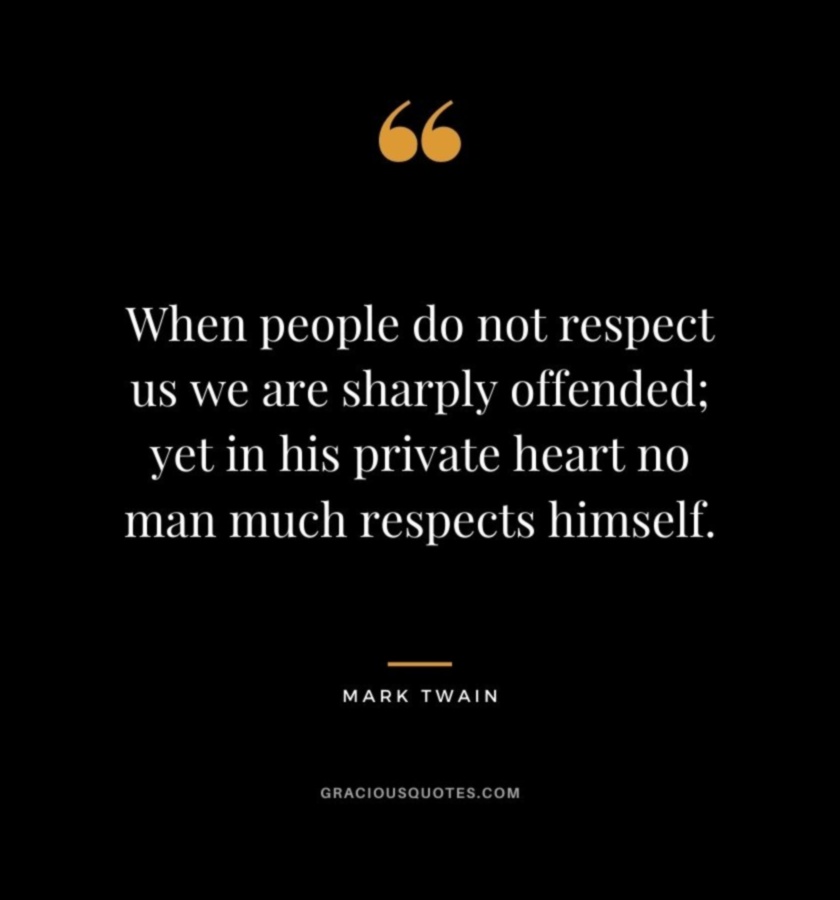
How to Decline College Admission
This guide will walk you through the steps of declining a college admission offer, including how to write a polite and professional rejection letter, how to avoid burning bridges, and how to deal with the emotional impact of declining an offer.

Steps to Decline College Admission
-
Decide whether you want to decline the offer immediately or wait until you have received other offers.
-
If you decide to decline the offer immediately, send a polite and professional rejection letter to the admissions office.
-
If you decide to wait until you have received other offers, send a tentative acceptance to the college you are considering attending.
-
Once you have made a final decision, send a formal rejection letter to the college you are declining.
Common Reasons for Declining College Admission
-
Financial reasons
-
Academic reasons
-
Personal reasons

How to Decline College Admission Politely
When declining a college admission offer, it is important to be polite and professional. Here are a few tips for writing a polite and professional rejection letter:
-
Start by thanking the admissions office for their offer of admission.
-
Explain why you are declining the offer in a clear and concise way.
-
Express your gratitude for the opportunity to have been considered for admission.
-
Close by wishing the college and its students all the best in the future.

What to Do if You Change Your Mind After Declining College Admission
If you change your mind after declining a college admission offer, it is important to act quickly. Here are a few steps to take if you change your mind after declining a college admission offer:
-
Contact the admissions office of the college you are considering attending.
-
Explain that you have changed your mind and would like to accept their offer of admission.
-
Be prepared to provide any documentation that the college may require, such as a transcript or letter of recommendation.
How to Deal with the Emotional Impact of Declining College Admission
Declining a college admission offer can be a difficult decision, and it is important to deal with the emotional impact in a healthy way. Here are a few tips for dealing with the emotional impact of declining a college admission offer:
-
Allow yourself to grieve the loss.
-
Talk to your friends and family about how you are feeling.
-
Remind yourself that you made the best decision for yourself.
-
Focus on the positive aspects of your decision.
Tips for Choosing the Right College for You
When choosing a college, it is important to consider a variety of factors, including your academic interests, financial situation, and personal preferences. Here are a few tips for choosing the right college for you:
-
Do your research.
-
Visit colleges that you are interested in.
-
Talk to current students and alumni.
-
Make a list of your priorities and compare them to the colleges you are considering.
Feature Answer College admissions The process of applying to and being accepted to college Decline admission The act of rejecting an offer of admission to a college Rejection letter A letter sent by a college to a prospective student who has not been admitted College decision The final decision made by a prospective student about which college to attend Transfer admission The process of transferring from one college to another II. Steps to Decline College Admission
Declining a college admission offer can be a difficult decision, but it’s important to do it in a timely and respectful manner. Here are the steps involved in declining a college admission offer:
- Decide whether you want to decline the offer. This is a personal decision, and there is no right or wrong answer. Consider all of your options carefully before making a decision.
- Contact the college admissions office to let them know that you are declining their offer. Be sure to provide your name, student ID number, and the college you are declining.
- Write a letter to the admissions office. This letter should be polite and professional. It should also include a brief explanation of why you are declining the offer.
- Follow up with the admissions office to make sure that they have received your letter.
By following these steps, you can decline a college admission offer in a timely and respectful manner.
III. Common Reasons for Declining College Admission
There are many reasons why a student might decide to decline a college admission offer. Some of the most common reasons include:
- Financial concerns
- Academic fit
- Social fit
- Location
- Other personal reasons
It is important to weigh all of the factors involved in your decision before making a final decision about whether or not to accept a college admission offer. If you are struggling to make a decision, it may be helpful to talk to your parents, guidance counselor, or other trusted adults for advice.
IV. How to Decline College Admission Politely
When declining an offer of admission to a college, it is important to be polite and professional. You want to thank the college for their offer and express your sincere regret that you will not be able to attend.
Here are some tips for declining an admission offer politely:
- Write a personalized letter to the admissions office.
- Start the letter by thanking the college for their offer of admission.
- Explain why you will not be able to attend the college. Be honest and direct, but avoid being negative or critical.
- Express your sincere regret that you will not be able to attend.
- Thank the college again for their consideration.
You can also decline an offer of admission by email. However, it is generally better to write a personalized letter. This will show the college that you took the time to put thought and effort into your decision.
When declining an admission offer, it is important to be respectful and professional. You want to leave the college with a positive impression of you, even if you are not going to attend.
V. What to Do if You Change Your Mind After Declining College Admission
If you change your mind after declining college admission, there are a few things you can do.
First, contact the admissions office of the college you declined and let them know that you would like to reconsider your decision. Be prepared to explain why you have changed your mind and what has changed since you made your initial decision.
The admissions office may be willing to reconsider your application, but they may also have filled your spot with another student. If this is the case, you may be able to join the waitlist or apply for admission as a transfer student.
It is important to remember that changing your mind after declining college admission can be a difficult process. You may have to start the application process over again and you may not be guaranteed admission to the college of your choice. However, if you are truly committed to attending a particular college, it is worth it to try to reconsider your decision.
VI. How to Deal with the Emotional Impact of Declining College Admission
Declining a college admission can be a difficult decision, and it’s important to be aware of the emotional impact that it can have. You may feel disappointed, sad, or even angry. It’s important to allow yourself to feel these emotions and to process them in a healthy way.
Here are some tips for dealing with the emotional impact of declining college admission:
Talk to someone you trust. Talking about your feelings can help you to process them and to feel better. Talk to a friend, family member, counselor, or therapist.
Give yourself time. It takes time to heal from a disappointment. Don’t expect to feel better overnight. Allow yourself to grieve the loss of the college that you had hoped to attend.
Focus on the positive. There are many other great colleges out there. Focus on the positive aspects of the college that you’re attending and the opportunities that it will offer you.
Don’t give up. This is just one setback. You’ll still have the opportunity to achieve your dreams. Keep working hard and stay positive.VII. Tips for Choosing the Right College for You
When it comes to choosing the right college for you, there are a few things you need to consider.
First, you need to think about your academic goals. What do you want to study? What kind of career do you want to pursue? Once you know what you want to achieve, you can start narrowing down your list of potential colleges.
Second, you need to think about your financial situation. How much can you afford to pay for college? Keep in mind that the cost of college can vary significantly from one school to another.
Third, you need to think about the size and location of the college. Do you want to attend a small, private college or a large, public university? Do you want to live in a city or a rural area?
Finally, you need to think about the culture of the college. What kind of students attend the school? What are the academic and social opportunities like?
Once you have considered all of these factors, you should be able to narrow down your list of potential colleges to a few schools that you are interested in.
If you are still having trouble choosing the right college, you can talk to your high school guidance counselor, your parents, or other trusted adults. You can also visit colleges and attend college fairs to learn more about different schools.
VIII. Resources for Help with College Admissions
If you are struggling to decide whether or not to accept an offer of admission to a college or university, there are a number of resources available to help you make your decision. These resources can provide you with information about the colleges you are considering, help you to compare your options, and support you in making the right decision for you.
Here are a few resources that you may find helpful:
- College Board’s College Search: This website provides a comprehensive database of colleges and universities, as well as tools to help you compare your options.
- Niche College Rankings: This website provides rankings of colleges and universities based on factors such as academics, cost, and student life.
- U.S. News & World Report’s Best Colleges: This website provides rankings of colleges and universities based on a variety of factors, including academic reputation, student selectivity, and financial aid.
- Cappex College Search: This website provides a free college matching service that helps you find colleges that are a good fit for you based on your interests, abilities, and goals.
- AdmissionsMom: This website provides advice and tips on the college admissions process from a former college admissions officer.
- College Confidential: This website is a forum where students can discuss the college admissions process with each other and get advice from current college students and admissions officers.
These are just a few of the many resources that are available to help you with the college admissions process. By using these resources, you can make an informed decision about where to attend college and set yourself up for success in your future studies.
FAQs About Declining College Admission
Here are some frequently asked questions about declining college admission:
-
What is the best way to decline an admission offer?
-
How do I avoid burning bridges with a college that I’m declining?
-
How do I explain my decision to the college?
-
What are the consequences of declining an admission offer?
For more information on declining college admission, please see our article How to Decline College Admission.
FAQs About Declining College Admission
Q: How do I decline an admission offer politely?
A: When declining an admission offer, it is important to be polite and respectful. You should thank the college for their offer and explain your decision in a clear and concise manner. You should also be sure to express your gratitude for the opportunity to have been considered for admission.
Q: How do I avoid burning bridges with a college that I’m declining?
A: Even if you are declining an admission offer, it is important to maintain a positive relationship with the college. You never know when you might want to apply to the college in the future, or when you might need a letter of recommendation from a professor or administrator. When declining an admission offer, be sure to thank the college for their time and consideration, and express your interest in staying in touch.
Q: How do I explain my decision to the college?
A: When declining an admission offer, you should be honest with the college about your reasons for doing so. You should not feel obligated to provide a detailed explanation, but you should be sure to give the college a general idea of why you are making this decision.
Here are some possible reasons for declining an admission offer:
- You have decided to attend another college.
- You are no longer interested in the college’s program or curriculum.
- You are unable to afford the cost of attendance.
- You have received a better offer from another college.
It is important to remember that there is no right or wrong reason to decline an admission offer. The only thing that matters is that you are making the decision that is best for you.